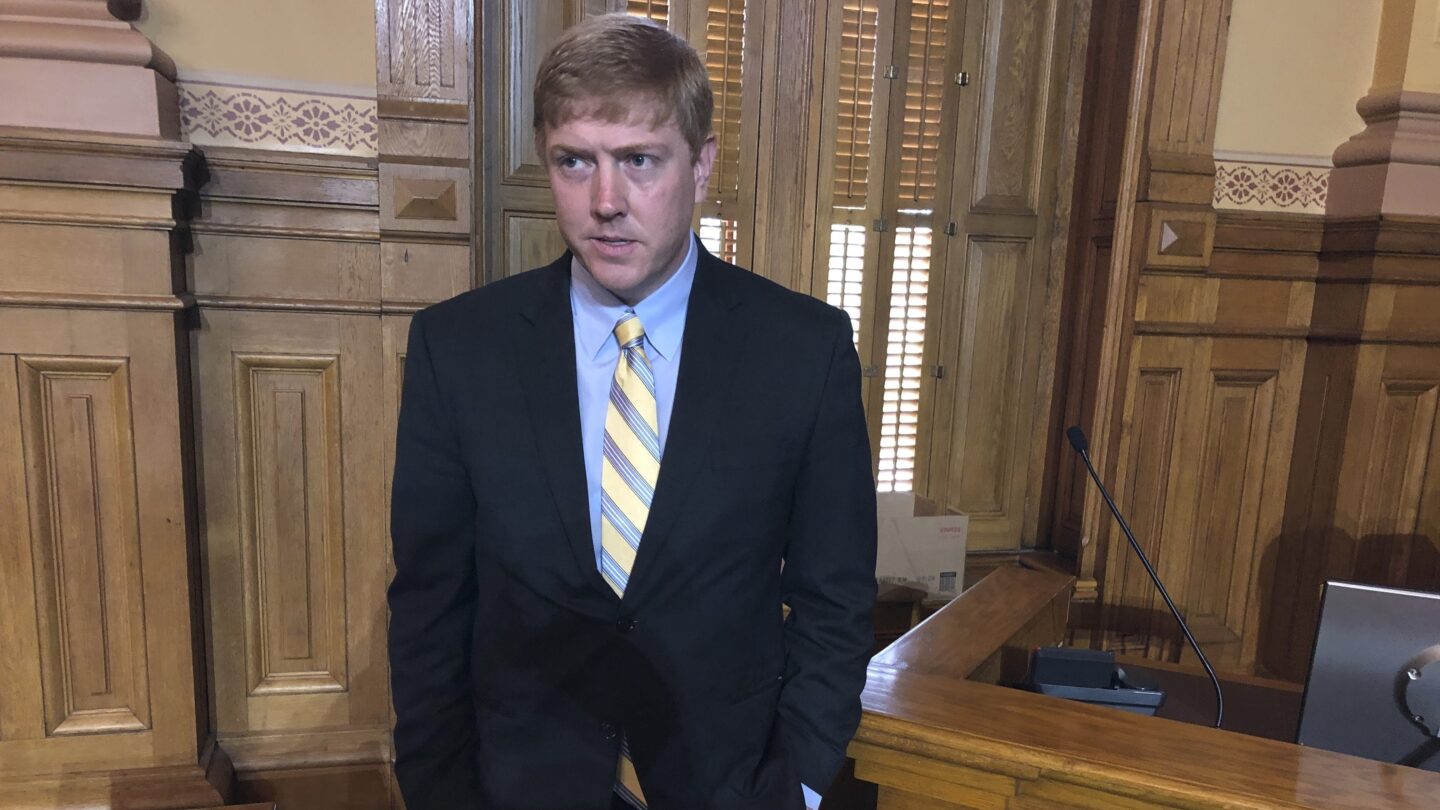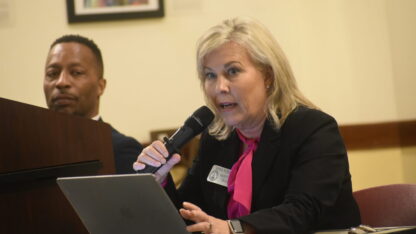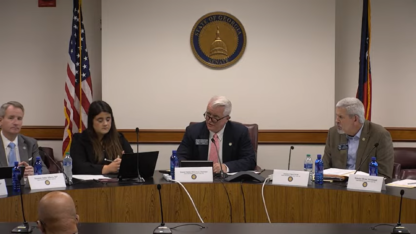Georgia lawmakers press the Department of Education for results on student literacy initiatives

Georgia lawmakers are pressing the Department of Education to improve student literacy.
After passing House Bill 538 last year — a bill that overhauls how students are taught to read — legislators are asking for results.
State Sen. Billy Hickman is one of those lawmakers — he is an education committee chair in his chamber.
At a recent meeting at the Capitol, Hickman told State Superintendent Richard Woods — a fellow Republican — that he appreciates what the Department of Education has done so far — like hiring literacy coaches — but, to him, it feels like too little, too late.
Only 39% of Georgia third graders were proficient or above in English language arts last school year, according to the 2022-2023 statewide Georgia Milestones.
“Y’all have known these numbers for years now, and we are just putting these coaches in place,” he said to Woods. “That’s very, very disturbing.”
Hickman is not the only lawmaker dissatisfied with Woods and the Department of Education.
Republican state Sen. Blake Tillery is the chair of his chamber’s powerful appropriations committee. He spoke directly to Woods in multiple Capitol committee meetings last year, asking for more.
“Knowing these numbers, I would expect — I would hope that there would be more people from the [Department of Education] beating down our doors with ideas,” he told Woods in a meeting last December. “Bring us a plan… show us what you would do.”
Tillery doubled down on this sentiment in a letter recently obtained by WABE.
“This letter is addressed to you on behalf of the 68% of Georgia’s children that are not reading proficiently by the end of third grade,” he started his message to Woods.
Tillery goes on to say that his committee has asked the Department of Education time and again for a “comprehensive” literacy plan. Though the department met those requests with a three-page overview of their strategy, that was not enough for Tillery.
“While this provided document expresses intentions, it does not detail how the department will ensure compliance or accountability nor does it provide an action plan for how to attain these intentions,” wrote Tillery.
Woods wrote back saying that improving student literacy is a process that takes time, and, thus far, the department is on track with the timeline from last year’s big literacy bill.
“GaDOE has met all requirements of HB 538 on or before the stated deadlines and we will continue to do so,” he told Tillery. “I understand that the scope and scale of the efforts in the plan that was shared with you could lead you to believe that the details provided are simply our goals or intentions, but let me be clear that they are specific actions that have been taken with the explicit goal of improving literacy results.”
Woods also said that he recognizes lawmakers’ concerns. He said as much in his letter, and in a committee meeting earlier this month.
“If you have questions, you have thoughts, you have concerns, you have criticisms, we’ll be glad to take that and move forward for the betterment of our kids,” he said.
Georgia’s new literacy plan draws inspiration from Mississippi, a state that has been lauded for its improvements in student reading proficiency. Some call it the “Mississippi Miracle.”
But that effort took almost a decade.








